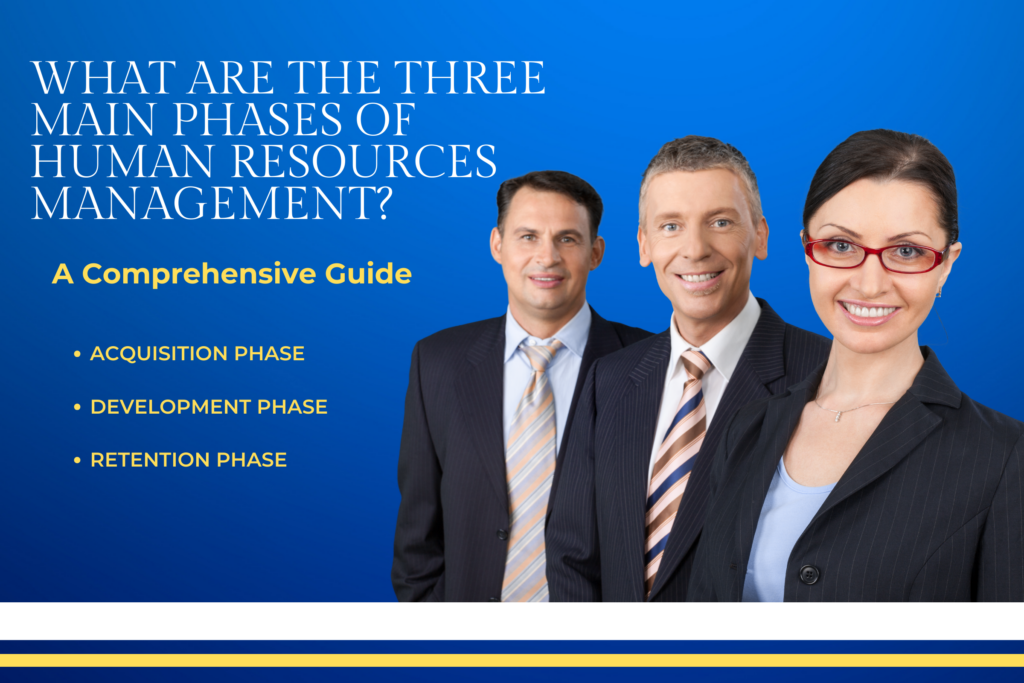
Imagine yourself venturing into the exciting world of entrepreneurship. You’ve got a fantastic idea for a product or service, and you’re brimming with enthusiasm. But as you navigate the uncharted territory of starting your own business, you might encounter challenges you never expected. This is where a mentor can be your guiding light.
A mentor is an experienced individual who offers guidance, support, and encouragement to someone less experienced. In the context of entrepreneurship, a mentor is typically a seasoned business professional who has walked the path you’re embarking on. They can share their knowledge, insights, and even war stories to help you navigate the highs and lows of building your business dream.
This article dives deep into the importance of mentorship for entrepreneurs, exploring the benefits it offers, how to find the right mentor, and how to build a successful mentoring relationship.
Also Read: Remote vs. Hybrid Work – Making The Right Choice?
Why Mentorship Matters for Entrepreneurs?
Think of starting a business like climbing a mountain. Sure, you can research the route, pack the right gear, and set off with determination. But having a seasoned climber by your side, someone who’s conquered that mountain before, can make all the difference. Here’s how a mentor can empower you on your entrepreneurial journey:

- Gain Valuable Knowledge and Insights: A mentor can share their business expertise, industry knowledge, and practical tips they’ve learned through their own experiences. This can be invaluable for a new entrepreneur who’s still figuring things out.
- Strategic Guidance: Mentors can offer valuable perspective when you’re faced with tough business decisions. They can help you explore different options, identify potential risks, and develop effective strategies to move forward.
- Avoid Costly Mistakes: Learning through trial and error is part of the entrepreneurial journey. But a mentor can help you avoid some of the common pitfalls they might have encountered themselves. This can save you time, money, and a lot of headaches!
- Boost Your Confidence and Motivation: The road to entrepreneurial success can be challenging. A mentor can be a source of encouragement and support, reminding you of your vision and providing a much-needed confidence boost when you face setbacks.
- Expand Your Network: Mentors often have a network of contacts and connections within their industry. They can introduce you to potential investors, partners, or even future employees, opening doors that might not have been accessible on your own.
Finding the Perfect Mentor: Matching Your Needs with the Right Experience
Finding the right mentor is crucial for a successful relationship. Here are some tips to guide you in your search:

- Identify Your Needs: What specific areas do you need guidance in? Is it marketing, finance, business operations, or simply someone to bounce ideas off of? Knowing your needs will help you find a mentor with the right expertise.
- Consider Your Industry: Look for a mentor who has experience in your specific industry or a closely related field. Their industry-specific knowledge can be incredibly valuable as you navigate the unique challenges of your sector.
- Seek Referrals: Talk to other entrepreneurs, business professionals, or even professors at business schools. They might be able to connect you with a suitable mentor.
- Professional Organizations: Many professional organizations offer mentorship programs. These programs often match aspiring entrepreneurs with experienced mentors based on their needs and goals. Consider joining relevant organizations to explore mentorship opportunities.
Also Read: Breaking Barriers: Strategies for Bridging the Generation Gap in the Workplace
Building a Rewarding Mentorship Relationship: Tips for Success
Finding the right mentor is only half the battle. Here’s how to cultivate a thriving mentorship relationship that benefits both parties:
- Set Clear Expectations: Have a conversation with your mentor about your goals for the relationship. Discuss how often you’ll meet, preferred communication methods, and what topics you’d like to focus on.
- Be Prepared and Proactive: Come to your meetings with your mentor with specific questions or topics to discuss. Be prepared to share updates on your business progress and demonstrate your initiative.
- Respect Your Mentor’s Time: Mentorship is a two-way street. Be respectful of your mentor’s time and come prepared for your meetings.
- Be Open to Feedback: A good mentor won’t shy away from offering constructive criticism. Be receptive to feedback and use it as an opportunity to learn and grow.
- Communicate Effectively: Maintain open and honest communication with your mentor. Keep them updated on your progress, ask questions, and share any challenges you’re facing.
- Express Gratitude: Thank your mentor for their time, guidance, and support. A simple gesture of appreciation goes a long way in strengthening the relationship.
Beyond Traditional Mentorship: Exploring Different Mentorship Models
The traditional mentor-mentee relationship isn’t the only option available. Here are some alternative mentorship models that can be beneficial for entrepreneurs:

- Peer Mentoring: This involves connecting with other entrepreneurs who are facing similar challenges. You can share experiences, offer mutual support, and learn from each other’s successes and failures. Online forums, co-working spaces, and industry meetups can be great places to find peer mentors.
- Group Mentorship: This model involves a group of mentees being mentored by a single experienced professional. This can be a great way to gain diverse perspectives and insights from a mentor and your fellow mentees. Group discussions can also spark new ideas and foster a sense of community among entrepreneurs.
- Reverse Mentorship: In this model, a less experienced entrepreneur mentors a more seasoned business professional. This might sound unusual, but it can be mutually beneficial. The younger entrepreneur can offer fresh perspectives and insights on current trends and technologies, while the experienced mentor can provide guidance and strategic advice.
- Micro-Mentorship: This involves short, focused mentoring sessions that address a specific challenge or question. Micro-mentorship platforms connect entrepreneurs with experienced professionals for brief, targeted consultations. This can be a great way to get quick and focused advice without a long-term commitment.
The Digital Age Advantage: Online Mentorship Platforms
Technology has made mentorship more accessible than ever before. Several online platforms connect entrepreneurs with potential mentors across the globe. These platforms offer features like matching algorithms, scheduling tools, and secure communication channels to facilitate effective mentorship relationships.
Here are some popular online mentorship platforms to explore:
- MentorMe [https://mentorme-ngo.org/?lang=en]
- Guidestar https://www.guidestar.org/ (connects nonprofits with mentors)
- SCORE https://www.score.org/
- Catapult https://www.catapultadvisors.com/
Taking the First Step: Embracing Mentorship for Entrepreneurial Success
Whether you’re just starting your entrepreneurial journey or looking to take your business to the next level, mentorship can be a game-changer. Finding the right mentor can equip you with the knowledge, guidance, and support you need to navigate challenges, make informed decisions, and build a thriving business. So, don’t hesitate to reach out and explore the world of mentorship!
Remember, mentorship is a valuable tool, but it’s not a magic bullet. Your success will ultimately depend on your hard work, dedication, and willingness to learn from your experiences. However, with a supportive mentor by your side, you’ll be well on your way to turning your business dream into a reality.
Now, go out there, connect with a mentor, and chase your entrepreneurial dreams!
The Importance of Mentorship for Entrepreneurs – FAQs
Mentorship can be an invaluable resource for aspiring and existing entrepreneurs. This FAQ section addresses some common questions to help you understand how mentorship can benefit you and how to find the right mentor for your needs.
- I’m a complete beginner with my business idea. Can mentorship still be helpful?
Absolutely! In fact, mentorship can be especially beneficial during the early stages of your entrepreneurial journey. A mentor can help you refine your business idea, develop a solid plan, and navigate the initial challenges of starting a business.
- What if I can’t afford to hire a mentor?
There are many free or low-cost mentorship options available! You can explore online mentorship platforms, join professional organizations that offer mentorship programs, or seek out peer mentors through co-working spaces or industry meetups.
- Is there a specific type of mentor I should look for?
The ideal mentor depends on your specific needs and goals. Consider someone with experience in your industry, someone who has faced similar challenges as you, or someone with expertise in an area where you need guidance (e.g., marketing, finance).
- What if I don’t have a network of contacts to find a mentor?
Don’t worry! Many resources can help you connect with potential mentors. Talk to professors at business schools, reach out to industry organizations, or explore online mentorship platforms that use matching algorithms to connect you with suitable mentors.
- How much time does mentorship typically require?
The time commitment can vary depending on the mentor-mentee relationship and your needs. Some mentorships involve weekly meetings, while others might consist of occasional check-ins and consultations. Discuss your expectations and availability with your mentor to establish a mutually beneficial schedule.
- What if I don’t feel comfortable asking my mentor for help?
A good mentor is there to support you and help you succeed. Don’t be afraid to ask questions, even if you think they might seem basic. The more open and honest you are with your mentor, the more effective the relationship will be.
- Is mentorship a one-way street where the mentor just gives advice?
Not at all! Mentorship is a two-way relationship. While you’ll gain valuable knowledge from your mentor, you can also offer them fresh perspectives and insights based on your experience.
- What happens if the mentorship relationship isn’t working out?
It’s important to find a mentor who’s a good fit for your personality and learning style. If, after a fair try, you feel the relationship isn’t working, it’s okay to have an open conversation with your mentor and explore other options.
- How can I show appreciation to my mentor for their time and guidance?
There are many ways to express your gratitude to your mentor. A simple thank you note, a handwritten card, or even offering to help them with a project can go a long way in strengthening the relationship.
- I’m convinced! Where can I start my search for a mentor?
There are many resources available to help you find a mentor. Here are a few suggestions:
- Online Mentorship Platforms: Explore platforms like MentorMe [https://mentorme-ngo.org/?lang=en] or Catapult [https://www.catapultadvisors.com/] that connect entrepreneurs with potential mentors.
- Professional Organizations: Many industry associations and business organizations offer mentorship programs. Consider joining relevant organizations to explore these opportunities.
- Co-working Spaces: Co-working spaces often attract a community of entrepreneurs. Talk to other members and see if anyone would be interested in a peer mentoring relationship.
Remember, mentorship is a powerful tool that can propel your entrepreneurial journey forward. By taking the initiative and finding the right mentor, you’ll gain invaluable knowledge, support, and guidance to turn your business dream into a reality.

